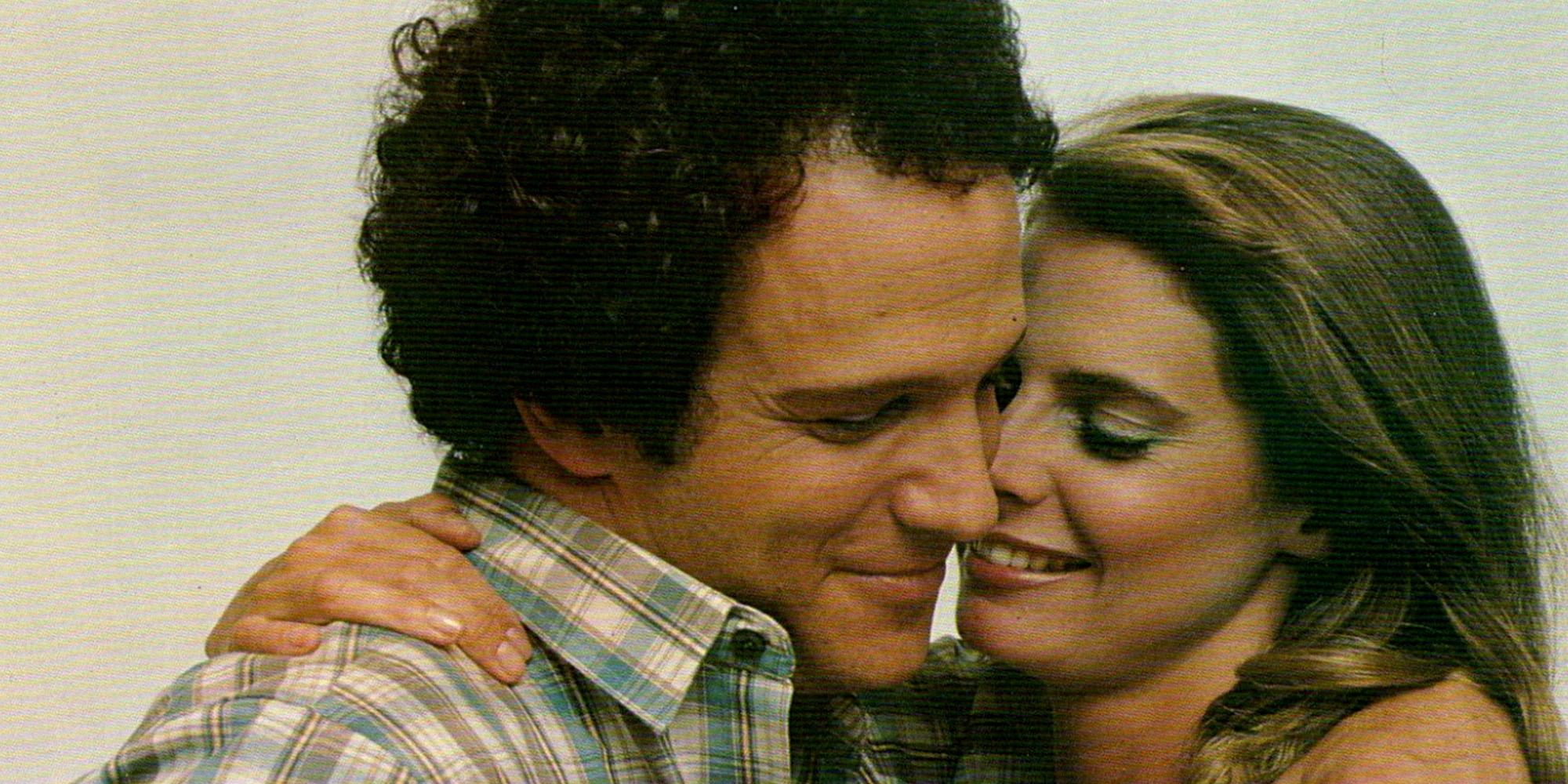
In the fluctuating and style-influenced world of Hollywood, commercial flops can be devastating for artistic and innovative projects, as well as a letdown for artists and movie makers. Yet, genuine appreciation for artistry can provide a vital boost, encouraging confidence in one’s work. For Albert Brooks, a filmmaker, actor, and writer, a significant validation came from an unlikely quarter. Despite the fact that his 1981 film, Modern Romance, which satirized romantic comedy clichés and humorously delved into jealousy, flopped at the box office, it received unexpected support.
Brooks felt disheartened due to the lackluster marketing response and general public apathy towards his work, causing him to question both his skills and the unpredictable nature of the film industry. However, when esteemed director Stanley Kubrick, renowned for his grand epics and philosophical investigations, expressed admiration for Brooks’ work on Modern Romance, calling it “brilliant” and “the movie I’ve always wanted to make about jealousy,” Brooks experienced a renewal of hope. This unexpected endorsement from a respected figure not only served as a morale booster but also provided him with a valuable new perspective, and in his own words, “saved his life” at a crucial juncture. This intriguing encounter between the two filmmakers sheds light on an interesting, lesser-known link between them.
A Flop That Became “Brilliant” in Kubrick’s Eyes
Modern Romance Taps Into the Uncomfortable Truths of Relationships
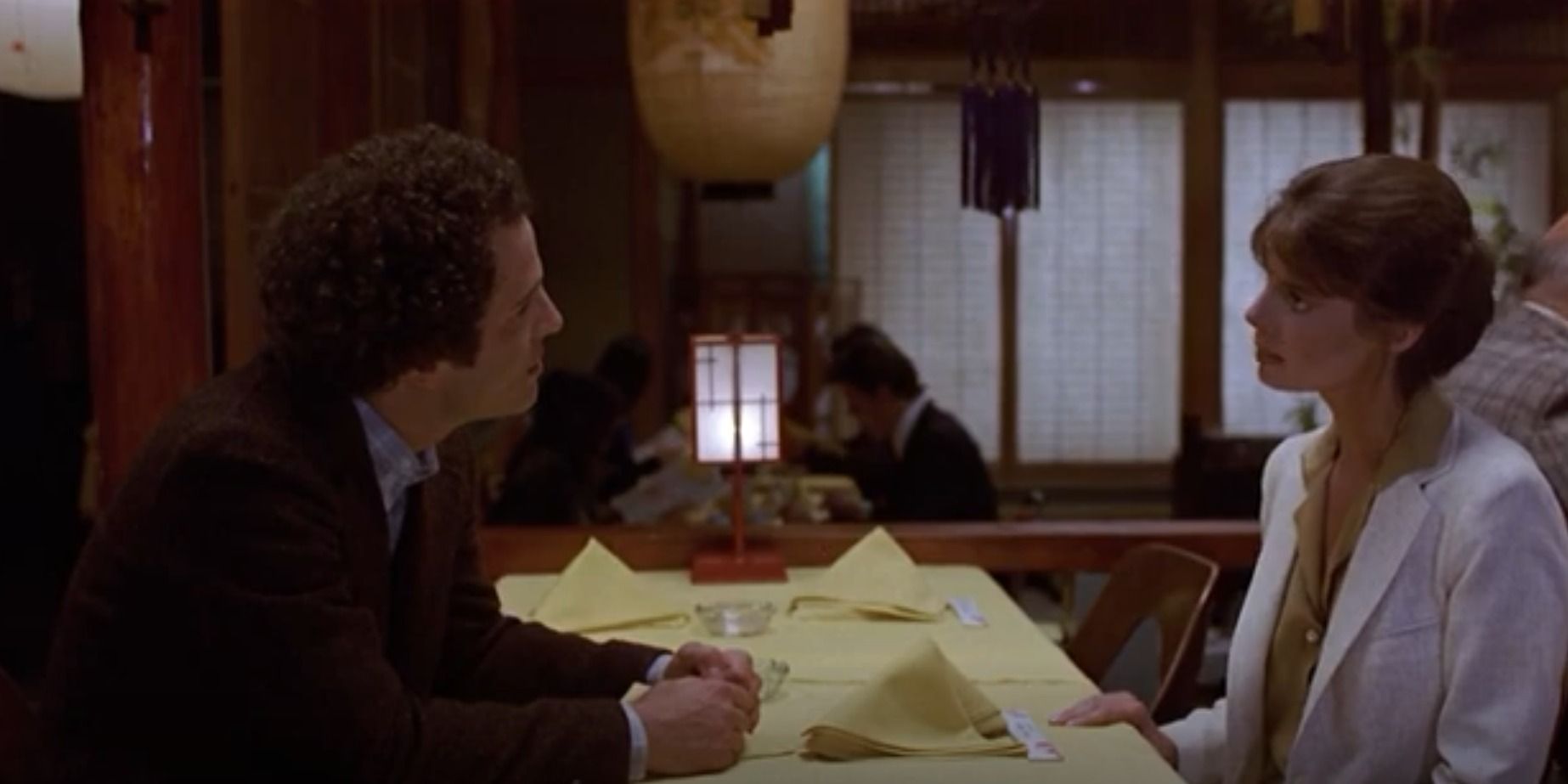
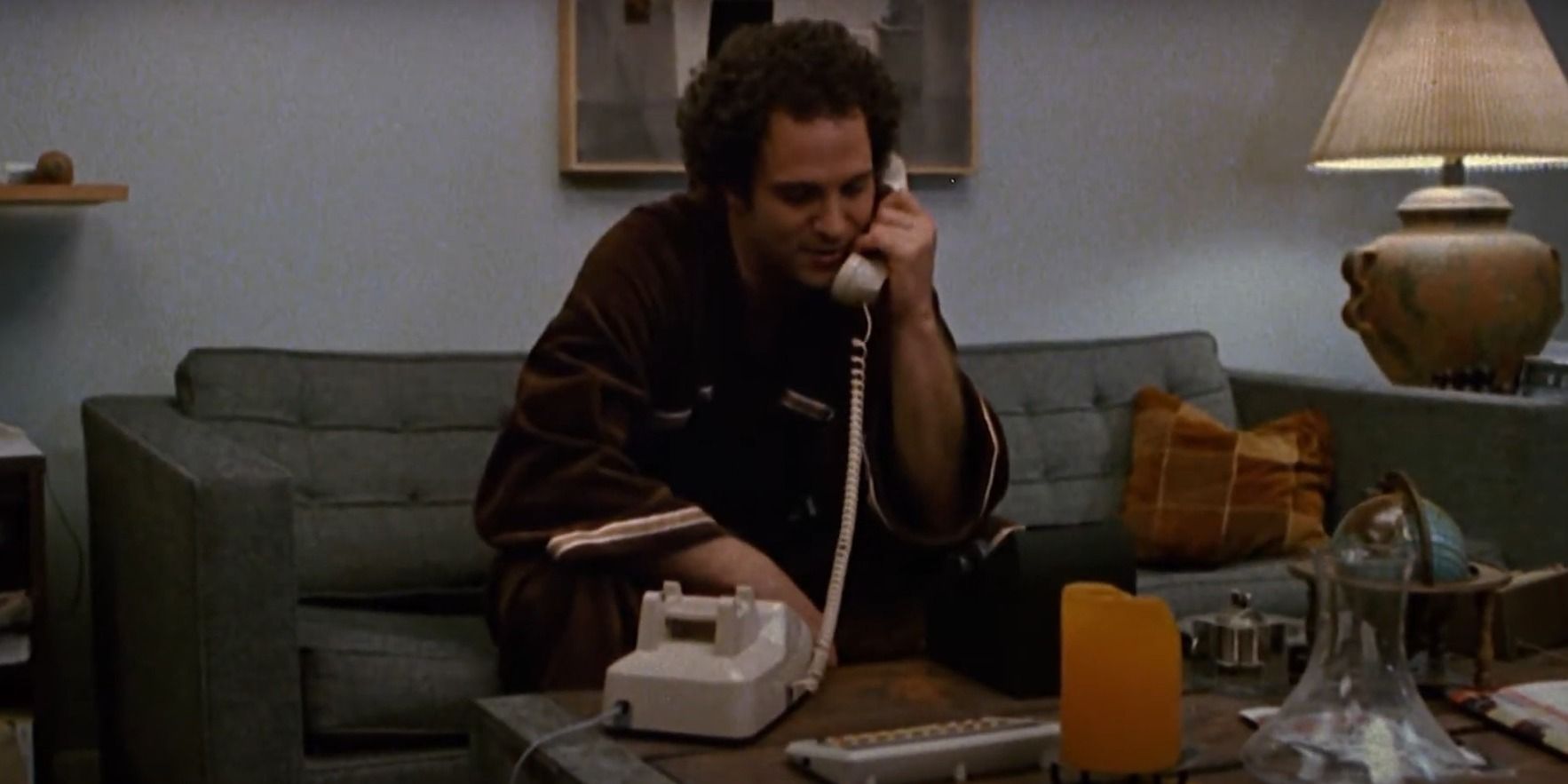
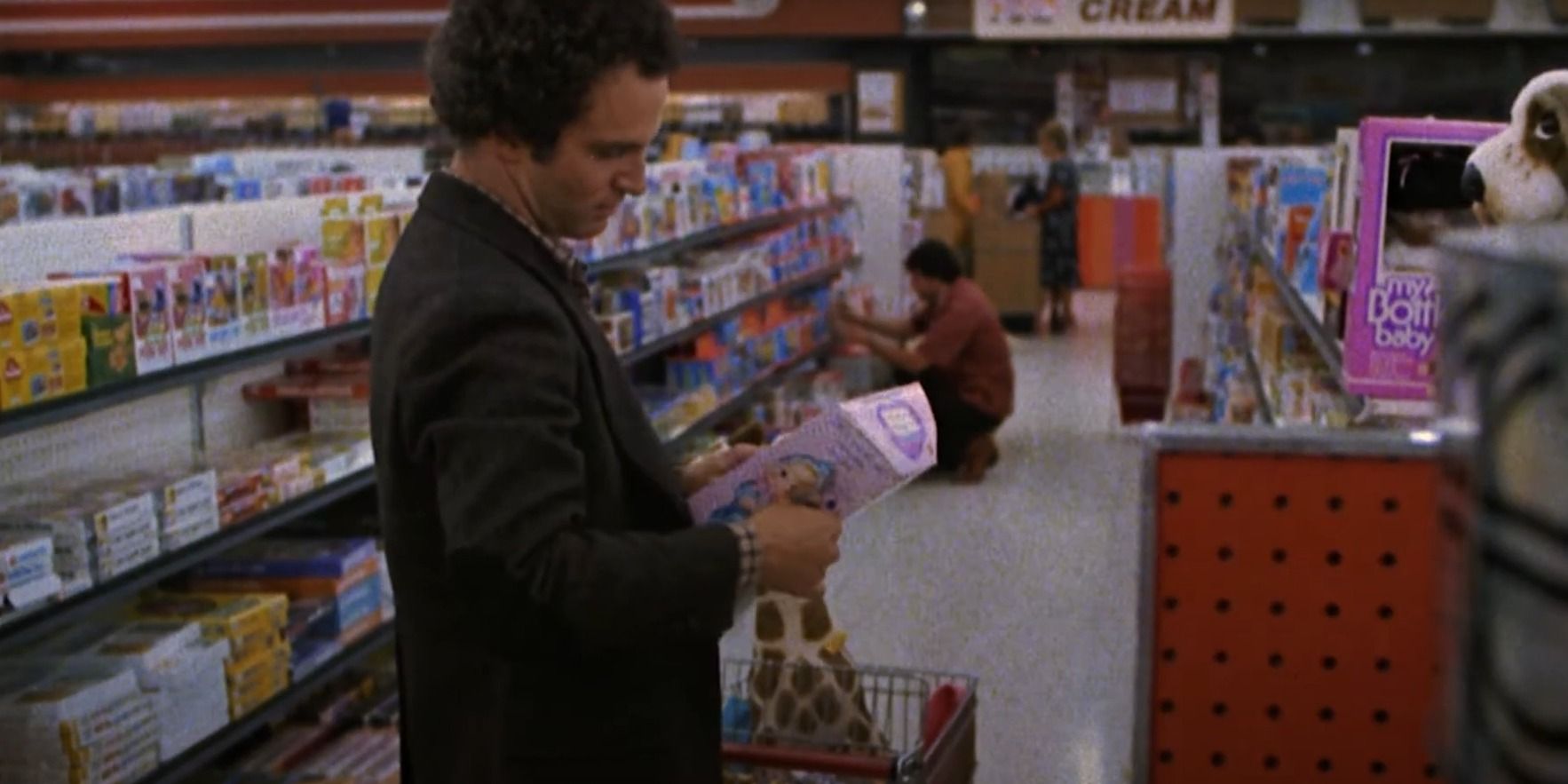
From his early days as a pioneering stand-up comedian to his impactful short films for Saturday Night Live and his unique filmmaking journey, Albert Brooks has consistently used his satirical perspective to scrutinize the self-centered and arrogant realm of show business. In the movie “Modern Romance“, as both the director and co-writer, he portrays Robert Cole, a neurotic Hollywood film editor trying to rescue a disastrous science fiction film starring George Kennedy (playing himself).
The movie starts off at a restaurant, where we find Robert ending his long-standing relationship with Mary (Kathryn Harrold), citing constant arguments as the reason. Yet, this decision does not last, as he soon finds himself riddled with regret and plunging into a whirlpool of jealousy, fixation, and escalating efforts to rekindle their romance. What unfolds is the story of a man who, after a breakup, behaves in a manner that initially appears quite ordinary – he goes shopping, purchases vitamin supplements, and seeks out an old friend for a date.
Meanwhile, he’s consistently pondering the notion of solitude and recurrently reminiscing about his past girlfriend. Unlike the endearing flawed hero in a typical romance movie, Robert exhibits an unstable character marked by insecurity and destructive actions. His job as a film editor, striving to make sense of a movie, mirrors his persistent, albeit awkward efforts to rearrange his disordered personal life into a harmonious romantic tale.
Looking at Robert Cole’s actions from a 2025 perspective, where relationship dynamics are more complexly understood, it’s clear that they would trigger a chorus of alarms. His possessiveness, his lack of respect for Mary’s emotional and physical boundaries, his cycle of intense breakups and manipulative reconciliations – these actions would be categorized as “toxic” in today’s terms.
Back in 1981, this movie didn’t mince words when it came to uncomfortable truths, creating a main character whose actions left audiences wriggling uneasily instead of swooning romantically. It might have been one reason for the film’s initial box office struggles. Interestingly, Modern Romance doesn’t provide Robert or me, the viewer, with the comfort of a typical happy ending. Instead, the end credits subtly hint at the cyclical nature of Robert and Mary’s relationship: they did get married, but within a month, they were already filing for divorce. At the time the movie was set, they were reportedly back together, planning another walk down the aisle.
This film, filled with dark humor reminiscent of Woody Allen’s Annie Hall, portrayed the cycle of on-again, off-again relationships experienced by characters like Robert. The creators intended this to reflect the ever-evolving nature of romance in today’s post-modern society. Unfortunately, the movie didn’t do well at the box office and left its creator, Brooks, feeling confused and disheartened. It was during this difficult time that Stanley Kubrick unexpectedly called, an event Brooks described as if “the President had phoned.
Kubrick Was Fascinated With the Portrayal of Jealousy in Modern Romance
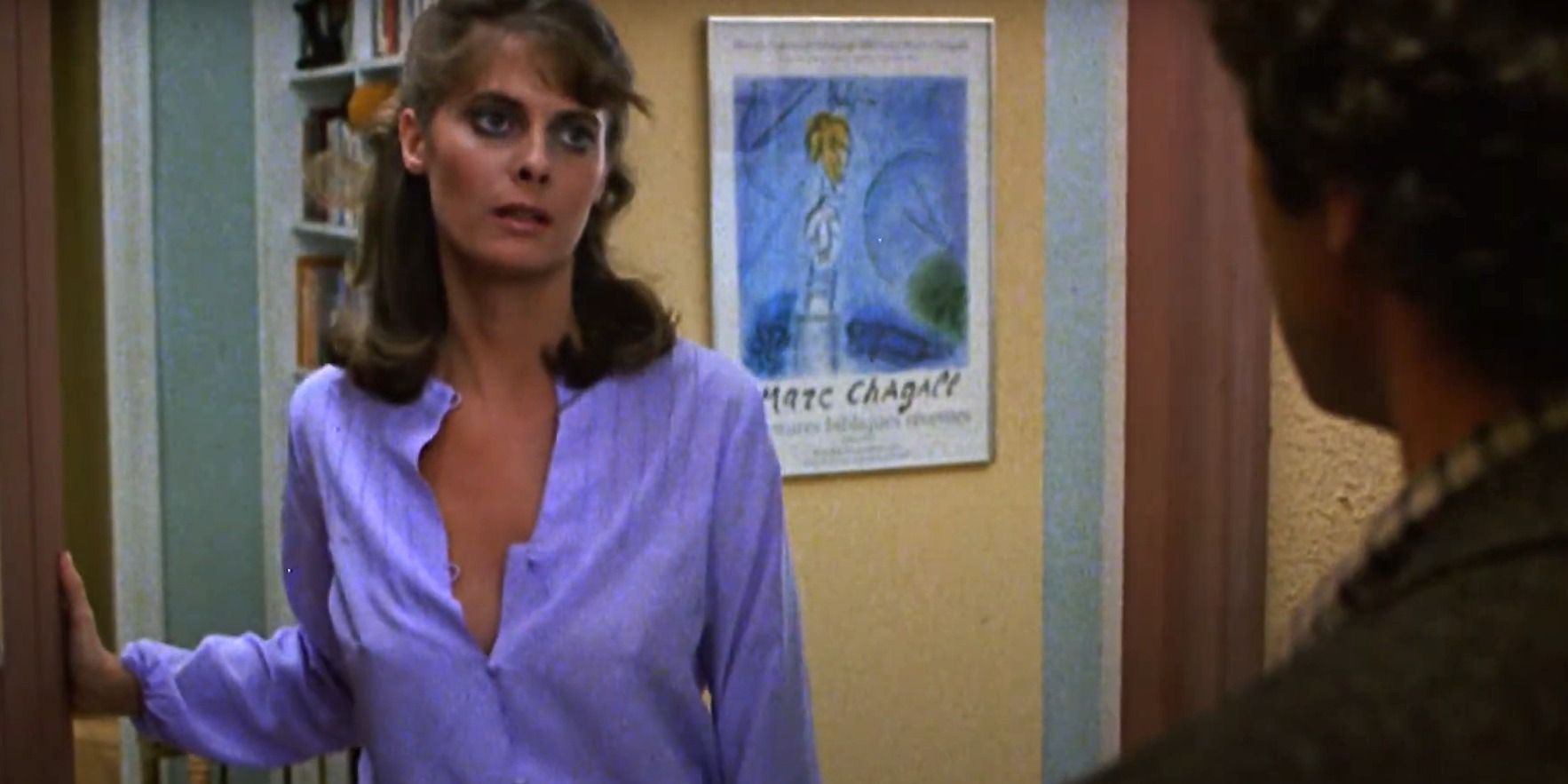
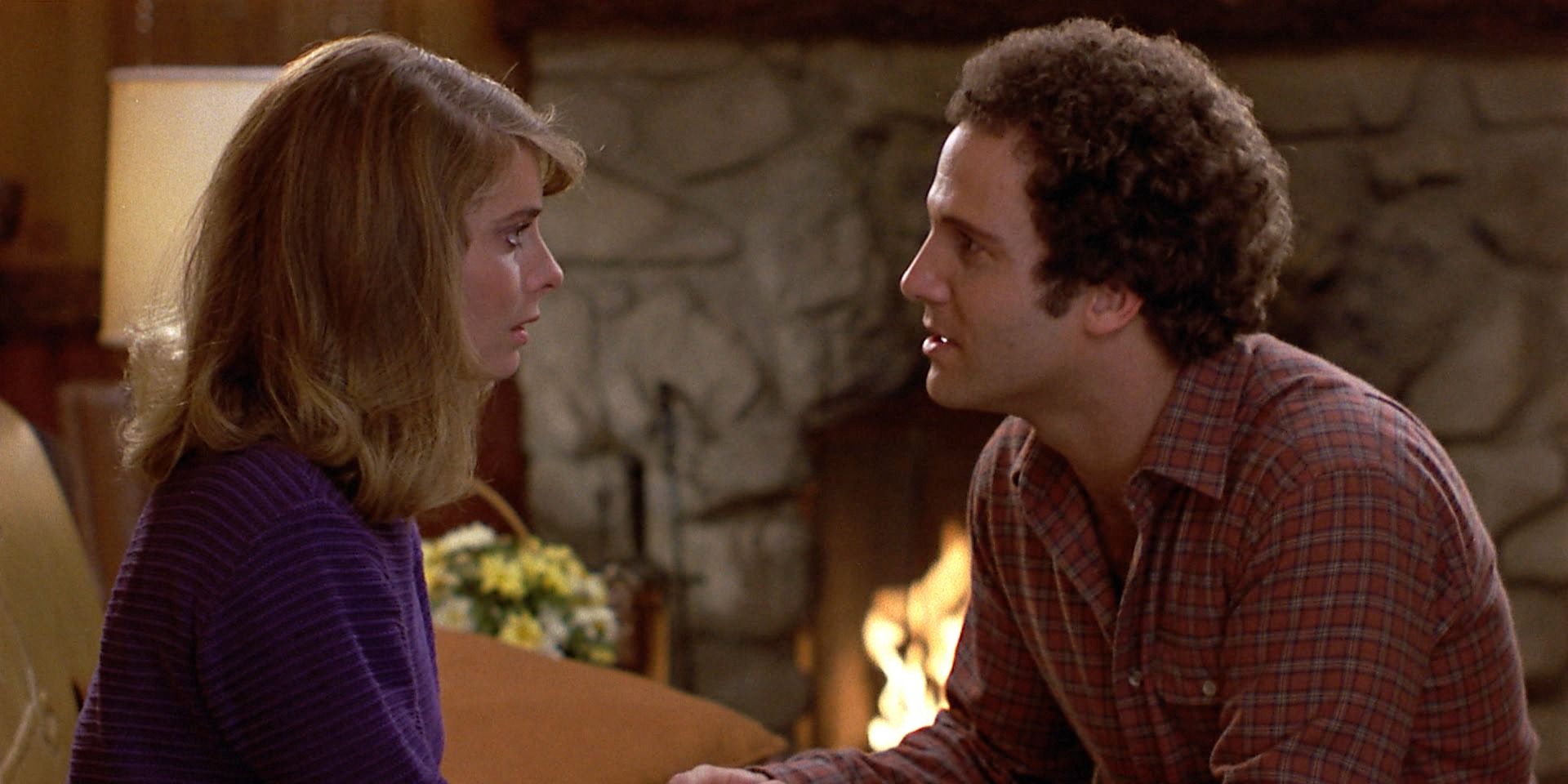
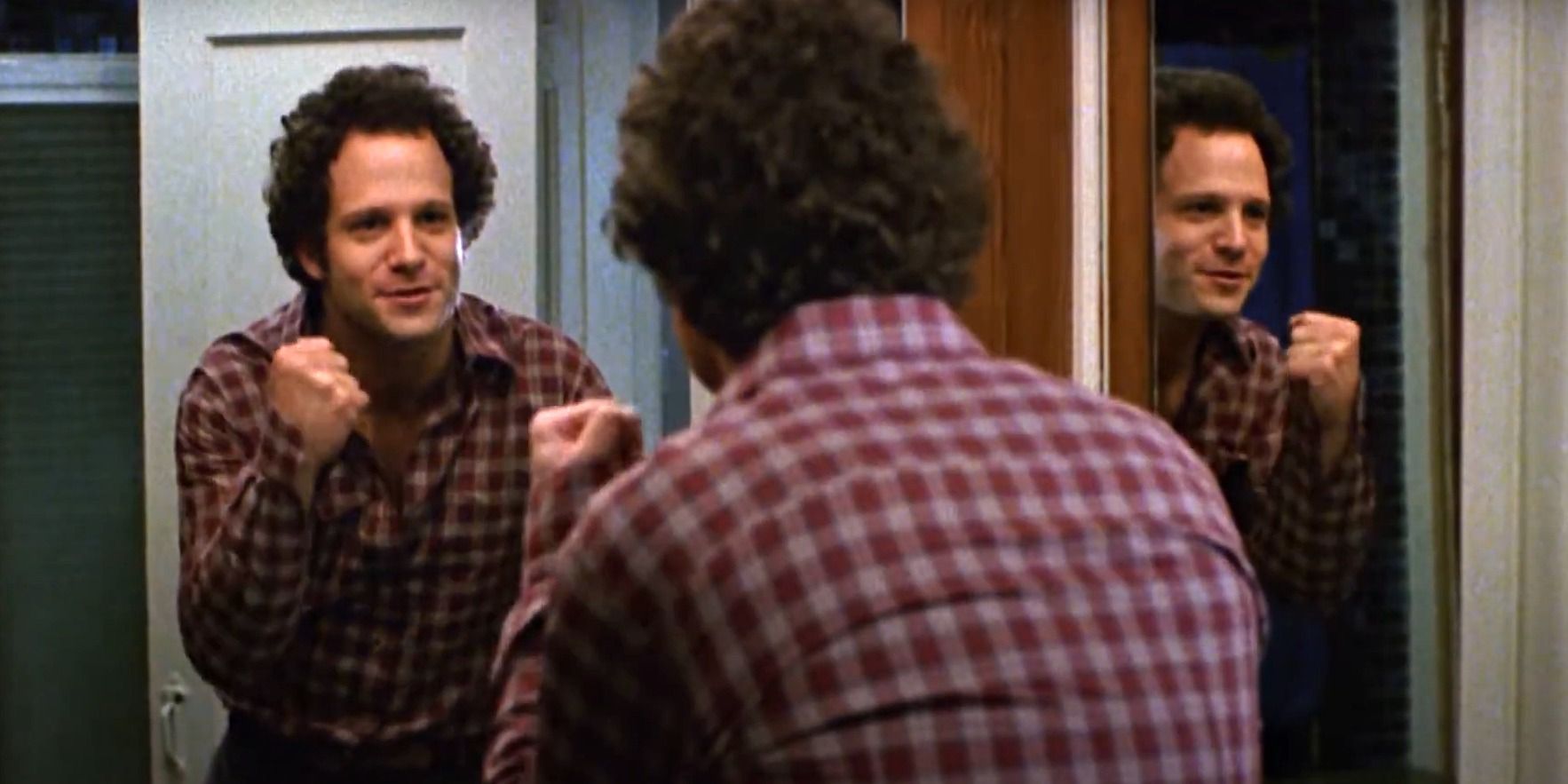
Moving beyond Albert Brooks’ typical humor-laden films, Kubrick’s expressed interest in the film “Modern Romance,” particularly his description of it as a definitive portrayal of jealousy – a movie he wished he could have made, suggests a common artistic pursuit between them. In a significant discussion they had, Brooks once said, “This is an outstanding film – the film I’ve always dreamed of making about jealousy.” At its heart, “Modern Romance” delves into the destructive force of jealousy.
Robert Cole’s life, especially when apart from Mary, is primarily influenced by persistent thoughts about her possible new suitors, her past relationships, and his own feelings of self-doubt. His jealousy isn’t romanticized as a grand passion, but rather portrayed as a troubling influence that undermines any potential for genuine connection with his partners. This stark, painfully honest portrayal of a mind dominated by possessiveness and insecurity is what seems to have captivated Kubrick.
Kubrick’s recognition of jealousy’s destructive force in Brooks’ 1981 comedy is further developed into a deeper, more psychological analysis about two decades later in his last film, “Eyes Wide Shut.” It could be contended that this movie’s enigmatic storyline is driven and fueled by a surge of jealousy. The film delves into the intricacies of marriage and commitment, focusing particularly on the challenges when both partners grapple with honesty, and infidelity emerges as a spectral presence.
In simpler terms, when Alice Harford (Nicole Kidman) reveals a vivid, unrealized sexual fantasy about a naval officer to her husband, Dr. Bill Harford (Tom Cruise), his sense of self-worth is hurt. This leads to feelings of insecurity, jealousy, and obsession, which eventually drive him on a long, tormented journey through the night. Stanley Kubrick, appreciating the realistic portrayal of jealousy in the film “Modern Romance,” saw a reflection of human nature that he would later delve into more deeply and darkly in his own work. This insight into human nature, which Brooks’ film provided, was something Kubrick continued to successfully explore.
How Kubrick’s Advice Saved Brooks’ Life
With an estimated budget of $4.5 million, the film “Modern Romance” managed to garner a total income of $2,863,642, leaving director Albert Brooks feeling uncertain and adrift. However, the outpouring of admiration he received was instrumental in his recovery. In a later interview, Brooks expressed gratitude, saying “He saved my life,” emphasizing the significance of this validation. Kubrick didn’t merely offer artistic accolades; he provided practical wisdom about the unpredictable nature of the film industry. Brooks remembered Kubrick telling him that:
If a film doesn’t do well because it’s not widely known, as Kubrick stated, “I shouldn’t think I’m on an even field just because I’m staying at home.” This idea that commercial flop wasn’t always a measure of artistic worth, particularly when the movie wasn’t heavily promoted, was precisely what Brooks required to understand. This initial mentorship, though, had its boundaries. When Kubrick, impressed by Brooks’ talent, reviewed his next script, “Lost in America,” his feedback, according to Brooks himself, was “extremely harsh.
In a commendable manner, Brooks maintained his stance respectfully, understanding that the guidance from a cinematic maestro might not always sync with his own comedic perspective for “Modern Romance.” Nevertheless, the disparity in creative minds didn’t lessen the significance of Kubrick’s early, gracious backing of the project. Kubrick recognized its brilliance, and his strategic endorsement allowed Albert Brooks to keep sharing his distinctive, frequently biting comedic wisdom with the world, which we still enjoy in various forms today.
Read More
- Clash Royale Best Boss Bandit Champion decks
- Vampire’s Fall 2 redeem codes and how to use them (June 2025)
- Mobile Legends January 2026 Leaks: Upcoming new skins, heroes, events and more
- World Eternal Online promo codes and how to use them (September 2025)
- How to find the Roaming Oak Tree in Heartopia
- Clash Royale Season 79 “Fire and Ice” January 2026 Update and Balance Changes
- Best Arena 9 Decks in Clast Royale
- Clash Royale Furnace Evolution best decks guide
- Best Hero Card Decks in Clash Royale
- FC Mobile 26: EA opens voting for its official Team of the Year (TOTY)
2025-05-28 04:36